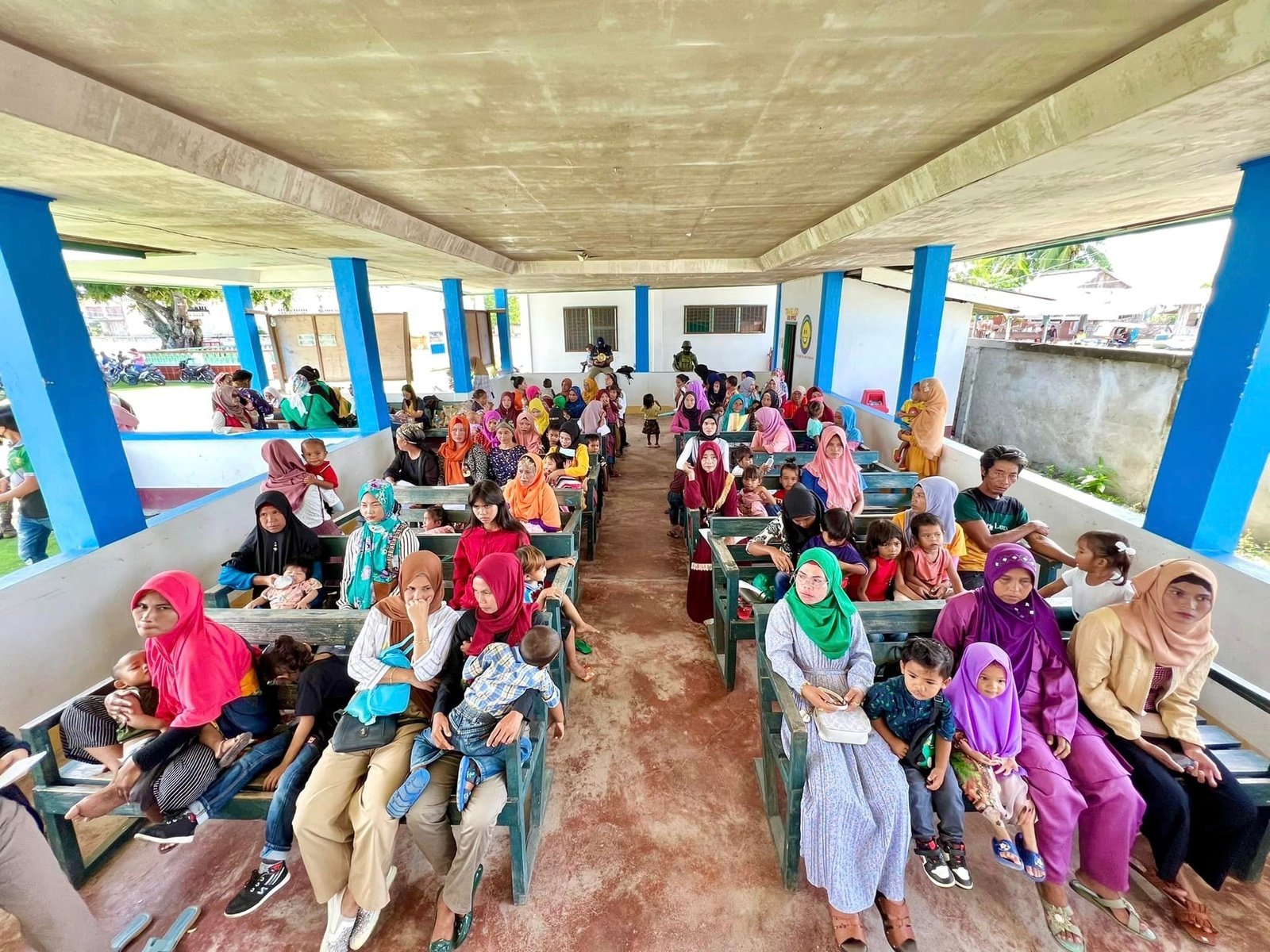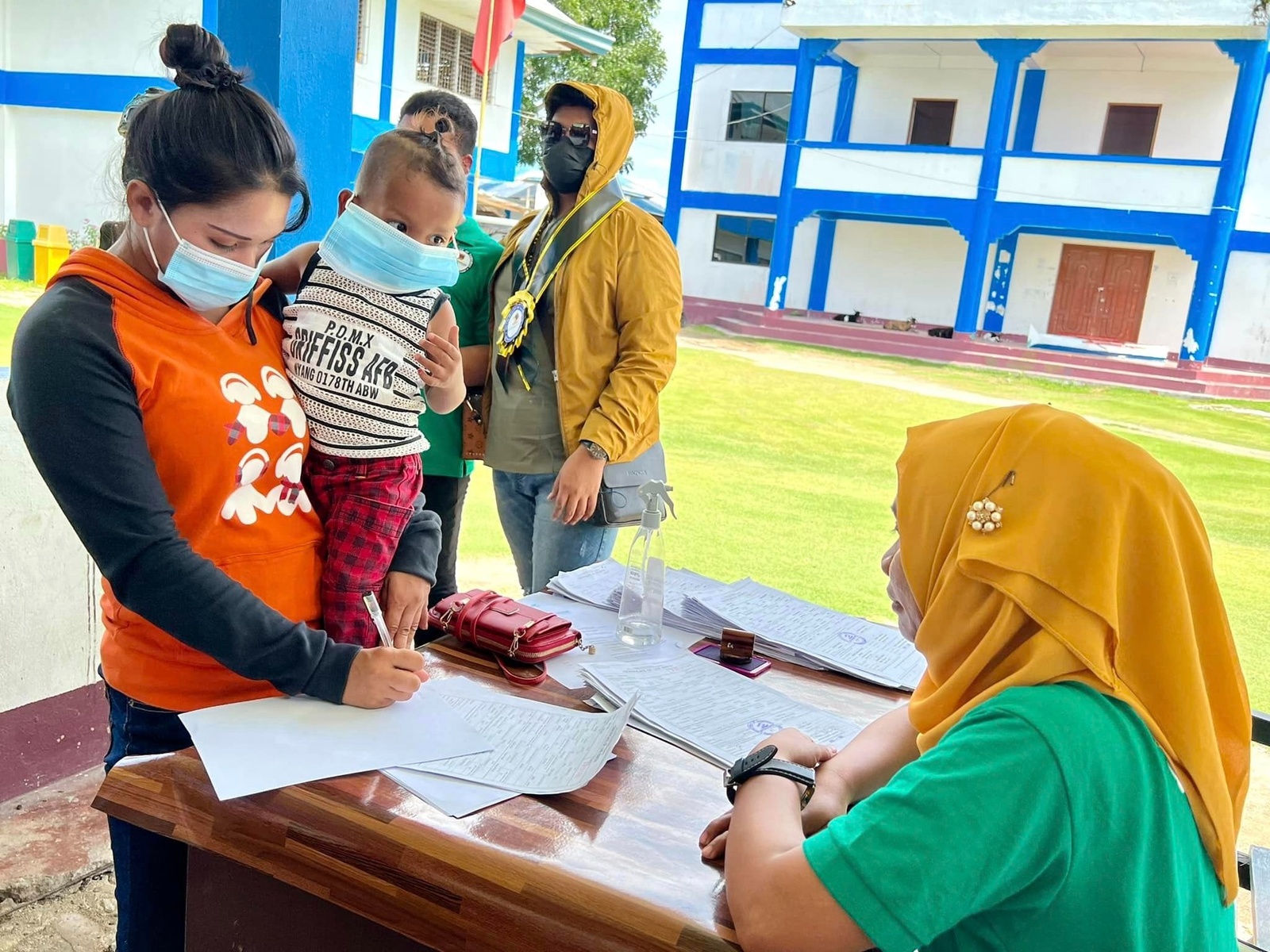BaSulTa children at risk of statelessness and their families receive birth certificates
BaSulTa children at risk of statelessness and their families receive birth certificates

Many children and families are at risk of statelessness in the Bangsamoro Region, which has been struggling with decades-long armed conflict and which has a lower birth registration rate compared to the national average. © UNHCR/Jori Pamintuan
Nearly a thousand persons at risk of statelessness in the island provinces of the Bangsamoro Region have been issued with birth certificates as part of UNHCR’s birth registration initiative, implemented in partnership with UNICEF, the Ministry of Social Services and Development (MSSD) and priority local government units.
A total of 998 individuals in the municipalities of Tandubas in Tawi-Tawi, Patikul in Sulu, and Hadji Mohammad Ajul in Basilan received their birth certificates during a series of three ceremonial distribution activities in their respective locales held from 15 to 23 September.
The distribution events culminate the birth registration process for this year’s batch, which covers two State-identified populations at risk of statelessness: the Sama Bajau and unregistered children within the context of forcible displacement due to armed conflict.
UNHCR and UNICEF have been implementing birth registration activities in Mindanao since 2019 as part of the Joint Strategy for Addressing Childhood Statelessness. To date, more than 2,000 individuals have been assisted by the program to address their risk of statelessness and facilitate access to basic rights and services.
“The birth certificate is very important. While it does not confer nationality, it serves as proof of one’s legal identity… and addresses the risk of statelessness of the Sama Bajau and unregistered children in displacement settings,” said Meriam Palma, UNHCR Field Associate.
The Sama Bajau in the Philippines were identified as a population at risk of statelessness due to their itinerant lifestyle and generations of non-registration of births.
Meanwhile, many children born within the context of forced displacement due to conflict are also considered at risk because they lack civil documentation. According to UNHCR’s Desk Review on Populations at Risk of Statelessness, data from the Philippine Statistics Authority (PSA) indicates that the registration rate in the Bangsamoro Region, which has been struggling with armed conflict and violence for decades, is only 37.85 percent – a low figure compared to the national average of over 90 percent.
“Children are deprived of birth certificates, their first proof of legal identity, simply because their parents cannot afford it, cannot reach it, or face some other barriers to learning about and accessing birth registration services,” said Rohannie Baraguir, UNICEF Child Protection Specialist.
She added, “Without a birth certificate, children are invisible to their governments. This means they may miss out on essential programs like child protection, healthcare, and education that help secure their most fundamental rights.”
The UNHCR-UNICEF Joint Strategy for Addressing Childhood Statelessness is an initiative that seeks to improve access to birth registration and support law reform and implementation. It contributes to the fulfillment of objectives under the country’s National Action Plan to End Statelessness.





